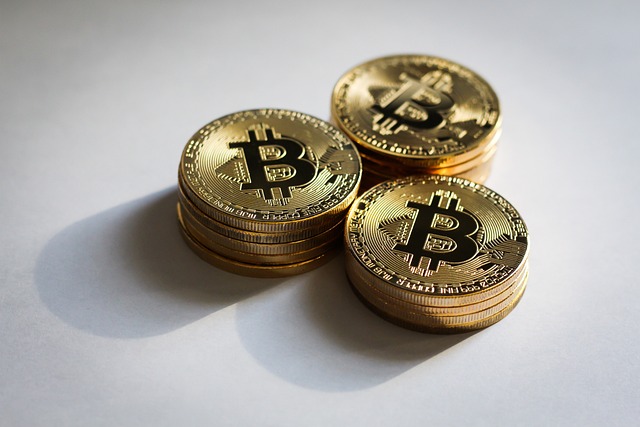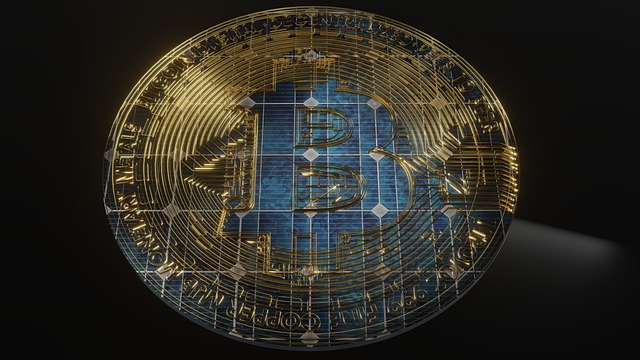Decentralized Finance Technology: Paving the Way for Financial Innovation
Decentralized Finance Technology: Paving the Way for Financial Innovation

The Evolution of Financial Systems
With the rapid advancement of technology, the financial systems around the world have also evolved. From the barter system in ancient times to the emergence of modern banking institutions, the ways in which we conduct financial transactions have undergone significant transformations. In the past, transactions were mostly conducted using physical means, such as coins and paper currency. However, with the advent of digitalization, the use of cash has declined, and electronic payment systems have become more prevalent.
One of the major milestones in the evolution of financial systems was the invention of credit cards. This innovation revolutionized the way we make payments and allowed us to conveniently purchase goods and services without the need for immediate cash. With the introduction of online banking and mobile payment systems, financial transactions became even more seamless and accessible to people from various walks of life. Moreover, the rise of cryptocurrencies, such as Bitcoin, further highlighted the potential for decentralized financial systems to shape the future of finance. These developments have brought about both convenience and challenges, paving the way for the emergence of decentralized finance (DeFi) as a promising alternative to traditional financial systems.
Traditional Finance: Limitations and Challenges
Traditional finance has long been the cornerstone of our economic systems, guiding how we manage and allocate capital. However, it is not without its limitations and challenges. One of the main drawbacks of traditional finance is its reliance on centralized intermediaries, such as banks and financial institutions, to facilitate transactions. This centralized model can lead to inefficiencies and delays in processes, as well as making it susceptible to single points of failure and security breaches.

Another challenge of traditional finance lies in its lack of transparency. The opacity surrounding financial transactions and the intricate web of intermediaries involved can make it difficult for individuals and businesses to fully understand and trust the system. This lack of transparency can also lead to problems like information asymmetry, where one party has access to more information than another, resulting in unfair advantages or potential manipulation. Additionally, the centralized nature of traditional finance often means that decision-making power and control rest with a select few, leaving individuals with limited influence over how their funds are managed and allocated. As a result, the potential for conflicts of interest and biased decision-making is a constant concern in traditional finance.
Understanding the Concept of Decentralized Finance
Decentralized Finance, also known as DeFi, is a revolutionary concept that is redefining the way we think about traditional financial systems. Unlike the traditional finance model, which relies on intermediaries such as banks and financial institutions to facilitate transactions, DeFi operates on a peer-to-peer network. This means that individuals can directly interact with one another, without the need for a middleman.
One of the key benefits of DeFi is that it offers greater financial inclusivity. Traditional financial systems often exclude individuals who do not have access to banking services or who live in remote areas. However, with DeFi, anyone with an internet connection can participate in the financial ecosystem. This level of inclusivity is especially important for individuals in developing countries, where access to financial services is limited. With DeFi, individuals can now access financial tools and services such as loans, savings, and investments, empowering them to take control of their own financial future.
The Advantages of Decentralized Finance Technology
Decentralized finance technology, also known as DeFi, has revolutionized the traditional financial landscape by offering numerous advantages to its users. One of the main advantages is the increased accessibility it provides. Unlike traditional finance systems that often require extensive paperwork, intermediaries, and geographical limitations, decentralized finance technology allows anyone with an internet connection to participate. This inclusivity empowers individuals from all walks of life, regardless of their socio-economic background or location, to access financial services and opportunities that were previously out of reach.
Another advantage of decentralized finance technology is the level of transparency it brings to the table. In traditional finance, many transactions and operations happen behind closed doors, making it difficult for the average person to fully understand where their money is going and how it is being managed. However, with DeFi, transactions are recorded on a blockchain, a public ledger accessible to anyone. This transparency not only enhances trust among users but also provides an opportunity for greater accountability within the financial system. Users can easily track their transactions, ensuring that their funds are being handled securely and in compliance with the agreed-upon terms.
Exploring the Key Components of Decentralized Finance
Decentralized finance (DeFi) is transforming the traditional financial system by revolutionizing how transactions and financial services are conducted. At its core, DeFi is built on a series of key components that work seamlessly to offer individuals greater financial autonomy and control. One of these components is blockchain technology, which serves as the backbone of DeFi applications.
By utilizing blockchain, DeFi eliminates the need for intermediaries, such as banks or brokers, for various financial activities. Instead, transactions are recorded on a public ledger that is transparent and open to anyone. This not only enhances efficiency but also increases the security of financial transactions. Additionally, decentralized applications (dApps) play a vital role in DeFi, as they provide individuals with access to a wide range of decentralized financial services. dApps are built on smart contracts, which are self-executing contracts with predefined rules. These contracts automatically execute transactions once specific conditions are met, removing the need for trust and manual intervention. Overall, exploring the key components of DeFi helps us understand how this innovative technology is reshaping the financial landscape, providing individuals with greater control over their assets and opening up new possibilities for financial inclusion.
Smart Contracts: Powering Decentralized Finance Applications
Smart contracts are revolutionizing the landscape of decentralized finance applications. These self-executing contracts eliminate the need for intermediaries and ensure seamless and trustless transactions. By automating the enforcement and fulfillment of agreements, smart contracts provide a transparent and efficient way of conducting financial transactions in the decentralized world.
One of the key advantages of smart contracts is their ability to eliminate the risk of fraud or manipulation. With traditional financial systems, trust is placed in centralized authorities, such as banks or governments, to validate and enforce contracts. However, smart contracts operate on a decentralized network, where transactions are recorded on a public ledger, known as the blockchain.

Additionally, smart contracts offer cost-saving benefits by cutting out middlemen and reducing transaction fees. In traditional financial systems, intermediaries such as banks or brokers charge fees for their services. With smart contracts, these intermediaries are eliminated, and the associated costs are significantly reduced. This opens up new opportunities for individuals and businesses to access financial services without the burden of high fees, making financial transactions more accessible and affordable for everyone.
Decentralized Exchanges: Redefining the Way We Trade
Decentralized exchanges are revolutionizing the way we trade. These platforms operate without the need for intermediaries, offering users a peer-to-peer trading experience. Unlike traditional centralized exchanges, decentralized exchanges allow users to have full control over their assets, eliminating the risk of hacks or theft by centralized entities.
One of the key advantages of decentralized exchanges is their enhanced security and privacy. With decentralized exchanges, users do not have to deposit their funds into a centralized platform for trading. Instead, they maintain control of their assets by utilizing smart contracts on the blockchain. This means that users can trade directly from their wallets, without the need to give up custody of their funds. Additionally, decentralized exchanges typically do not require personal information or identity verification, ensuring a high level of privacy for users. By eliminating the need for intermediaries, decentralized exchanges empower individuals to have full control over their assets and trade freely in a secure and private manner.
Decentralized Lending and Borrowing: Empowering Individuals
Decentralized lending and borrowing have emerged as powerful tools that can empower individuals in the world of finance. Through decentralized finance (DeFi) platforms, individuals can now access loans and lending services without the need for intermediaries such as banks or traditional financial institutions. This development has opened up new opportunities for people who may have been excluded from the traditional financial system due to various factors, such as limited access to credit or lack of collateral.
One of the key advantages of decentralized lending and borrowing is the increased accessibility it offers. With traditional finance systems, individuals often have to navigate complex requirements and go through extensive paperwork to obtain a loan. This can be a time-consuming and frustrating process, especially for those who are in urgent need of funds. However, with the advent of decentralized lending platforms, individuals can now access loans with greater ease and convenience. By using DeFi applications, users can participate in peer-to-peer lending networks where they can lend and borrow funds directly from other individuals around the world, cutting out the middleman and streamlining the process.
The Role of Stablecoins in Decentralized Finance
Stablecoins play a crucial role in decentralized finance (DeFi) by addressing the issue of price volatility that is often associated with cryptocurrencies. Unlike other digital assets like Bitcoin or Ethereum, stablecoins are designed to maintain a stable value, typically pegged to a fiat currency such as the US dollar. This stability makes stablecoins a reliable medium of exchange and a store of value within the DeFi ecosystem.
One of the key advantages of stablecoins is their ability to facilitate seamless transactions and enhance liquidity within DeFi platforms. By providing a stable unit of account, stablecoins enable users to transact without the need for constant price conversions and the risk of value fluctuations. This stability also attracts users who may be hesitant to adopt cryptocurrencies due to the volatility issues seen in traditional digital assets. Consequently, stablecoins offer a more accessible and user-friendly gateway into the world of decentralized finance, encouraging wider adoption and participation from individuals and businesses alike.
Overcoming Barriers to Adoption: The Future of Decentralized Finance
The future of decentralized finance holds immense promise, but it also faces significant obstacles that need to be overcome for widespread adoption. One of the primary barriers is the lack of awareness and understanding among the general public. For decentralized finance to thrive, it is crucial to educate individuals about its benefits, functionality, and potential risks. This can be achieved through educational campaigns, workshops, and online resources that explain the concepts in simple and accessible language.

Another challenge lies in the regulatory landscape surrounding decentralized finance. As this technology disrupts traditional finance and introduces new ways of transacting, regulators are struggling to keep up with the pace of innovation. Uncertainty around compliance requirements and legal frameworks creates hesitancy among businesses and investors to fully embrace decentralized finance. To overcome this barrier, it is essential for regulatory bodies to engage in open dialogue with the industry and work towards crafting clear and balanced regulations that protect consumers without stifling innovation. By creating a favorable regulatory environment, we can foster trust and confidence in decentralized finance, paving the way for its widespread adoption and integration into the global financial ecosystem.
What is decentralized finance?
Decentralized finance, or DeFi, refers to a new financial system that is built on blockchain technology and operates without intermediaries like banks or financial institutions. It aims to provide open and inclusive financial services to anyone with an internet connection.
What are the advantages of decentralized finance technology?
Decentralized finance technology offers several advantages. It provides greater financial freedom and control to individuals, reduces dependency on centralized authorities, increases transparency and security, enables seamless cross-border transactions, and fosters innovation in financial products and services.
What are smart contracts and how do they power decentralized finance applications?
Smart contracts are self-executing contracts that are stored and executed on a blockchain. They automatically execute predefined terms and conditions without the need for intermediaries. In decentralized finance, smart contracts enable various financial applications like lending, borrowing, trading, and more, by automating the process and ensuring trust and transparency.
How do decentralized exchanges redefine the way we trade?
Decentralized exchanges, or DEXs, allow users to trade cryptocurrencies directly with each other without the need for intermediaries. They eliminate the need for a central authority to hold and control users’ funds, providing greater security and privacy. DEXs also enable faster and more efficient trading, as there are no lengthy verification processes or market restrictions.
How does decentralized lending and borrowing empower individuals?
Decentralized lending and borrowing platforms enable individuals to lend or borrow funds directly from other individuals without the involvement of traditional financial institutions. This empowers individuals by providing them with access to capital, regardless of their location or credit history. It also allows for more competitive interest rates and eliminates the need for complex loan approval processes.
What is the role of stablecoins in decentralized finance?
Stablecoins are cryptocurrencies that are designed to have a stable value, usually pegged to a fiat currency like the US dollar. They play a crucial role in decentralized finance by providing stability and reducing the volatility associated with cryptocurrencies. Stablecoins enable users to store value and transact within the decentralized finance ecosystem without being exposed to the price fluctuations of other cryptocurrencies.
How can we overcome barriers to adoption and shape the future of decentralized finance?
To overcome barriers to adoption, it is important to raise awareness and educate the public about decentralized finance. Improving the user experience and making decentralized finance platforms more user-friendly will also play a crucial role. Additionally, regulatory clarity and collaboration between traditional financial institutions and decentralized finance projects can help bridge the gap and foster widespread adoption of this innovative technology.
Todays Featured Product:
Buy, exchange and grow your crypto securely with a Ledger hardware wallet, combined with the Ledger Live app. It’s never been easier to keep your crypto safe and accessible. Buy direct from Ledger.com and get todays Special Offers Here.




